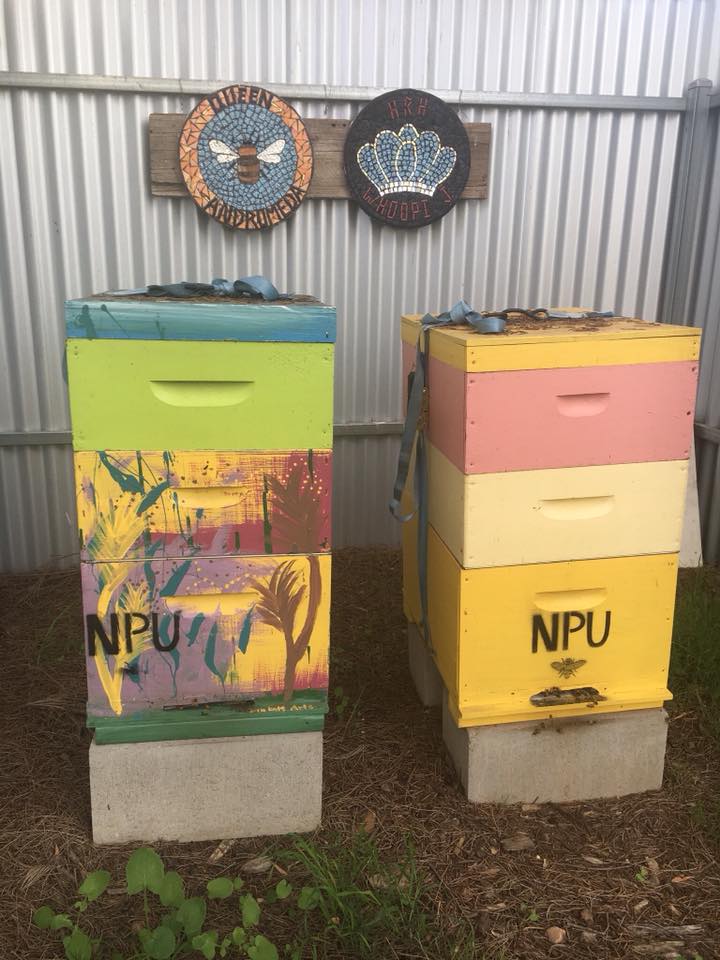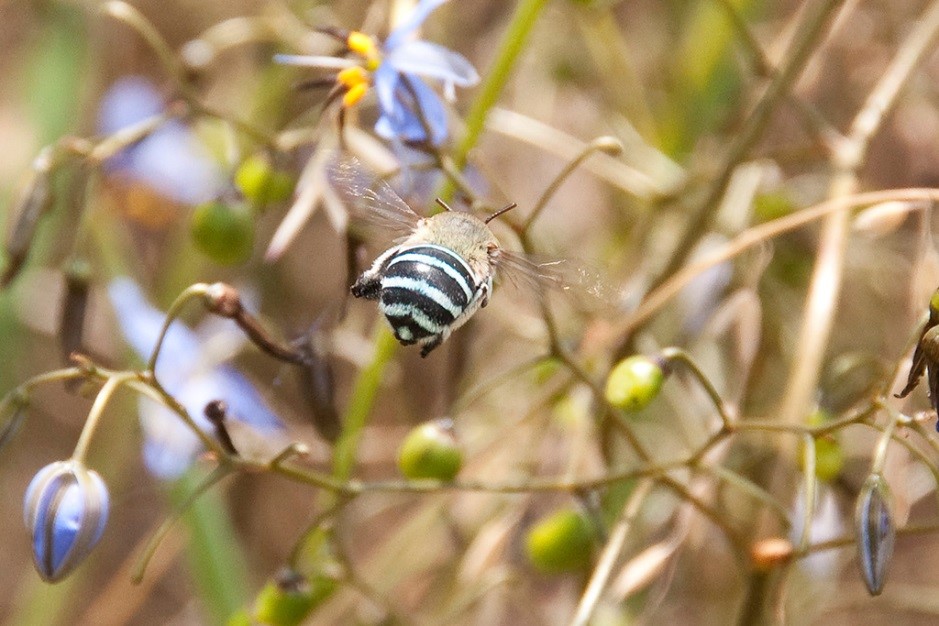Wasps and Bees
Bees and other pollinating insects such as butterflies, moths, native beetles and native wasps are important to our gardens, plant-based industries and the health of our eco-systems.
Honey bees swarm as part of a natural reproductive process. During this time the female bees (called worker bees) and the male bees (called drones) leave the main colony with their queen in a quest to find a new place to call home. The bees will often settle on a branch nearby and generally move on within one week. However, sometimes they may settle somewhere inappropriate. At this time, it is important to remain calm and not to disturb the bees.
Bee Swarm Relocation - Council Property
Council will relocate bees from Council land if it has been identified that the bees are causing a risk to public health and safety. Please contact our Customer Service Team 8366 9222 to report a bee swarm that is causing a nuisance or is a public health and safety risk in your area.
Bee Swam Relocation - Private Property
Council does not provide a service to relocate bees from private property. It is recommended that you do not attempt to remove a bee colony yourself, as this is a specialised task.
Please DO NOT:
- Spray the bees with water in an attempt to move them on. You will only drown them.
- Spray the bees with insecticide or throw objects at them as this may upset them as they are merely trying to take care of their queen.
Instead, contact the Beekeepers Society of South Australia to help the bees find a more suitable place to make their home. Fees may apply.
We recognise that residents may choose to keep a beehive in their backyard.
Residents who keep beehives in the urban environment have a social responsibility to ensure that their bees do not become a nuisance to neighbours.
In South Australia, any person who keeps honeybees must register as a beekeeper with Primary Industries and Resources SA (PIRSA) every 12 months. Registration is required regardless of the number, hive type, location or reason for keeping honeybees.
Contact the PIRSA Apiary Unit for further advice on keeping bees
 Council works in close partnership with Adelaide Bee Sanctuary to support urban honey beehives in selected community open spaces. These beehives are secured behind locked enclosures, are professionally managed by Adelaide Bee Sanctuary and house the Golden Italian bee – known for their gentleness.
Council works in close partnership with Adelaide Bee Sanctuary to support urban honey beehives in selected community open spaces. These beehives are secured behind locked enclosures, are professionally managed by Adelaide Bee Sanctuary and house the Golden Italian bee – known for their gentleness.
You are welcome to visit them and watch them go about their busy daily lives! They are located at:
- Athelstone Community Garden
Padulesi Park, 3 Victoria Avenue, Athelstone - Campbelltown Community Orchard
behind Reservoir Road Reserve and playground, Paradise
Additional Information on supporting urban bees:
- Rural Industries Research and Development Corporation - Bee Friendly Planting Guide
- Australian Museum - Pollination
- PIRSA - Protecting honey bees from pesticides
- Adelaide Bee Sanctuary
 The native bees that live in South Australia are solitary and do not live in hives or produce honey; however, they do play an important part in the pollination of Australian native and other plants.
The native bees that live in South Australia are solitary and do not live in hives or produce honey; however, they do play an important part in the pollination of Australian native and other plants.
- Campbelltown Bee BnB
Lochiel Park Butterfly Garden, adjacent to the Linear Park, River Torrens. The Campbelltown Bee BnB was constructed with 60 community members in July 2018. - Thorndon Park Native Bee Hotel
Hamilton Terrace, Paradise.
The Thorndon Park native bee hotel was constructed as a part of the playground redevelopment in 2022.
Additional Information on supporting native bees:
- Bee Business - Australian Native Bees Booklet
- BeeAware – Supporting native bee populations Environment SA - How to attract native bees to your garden
If you locate a European wasp nest do not disturb it.
European Wasps on Council or Private Property
 Seeing a few wasps flying in and out of a hole in the ground or retaining wall, vents in the outside of your house, hollows of trees or the eaves of houses on your property indicates a wasp nest is present.
Seeing a few wasps flying in and out of a hole in the ground or retaining wall, vents in the outside of your house, hollows of trees or the eaves of houses on your property indicates a wasp nest is present.
If you have located a nest on Council owned property or on private land, please contact Council on 8366 9222 to report. European wasp nests located within the Council area will be removed at no cost to residents.
You can destroy the occasional wasp by using a burst of flying insect spray. DO NOT use a spray if there are many wasps as this may aggravate the wasps.
What if I get stung?
Wasps can sting repeatedly. The sting results in fiery pain and red swelling. Stings to the face or multiple stings may lead to severe swelling and/or allergic reaction.
If this occurs and/or the person has difficulty breathing, contact the Poisons Information Centre on 13 11 26.
If in doubt seek medical advice.
